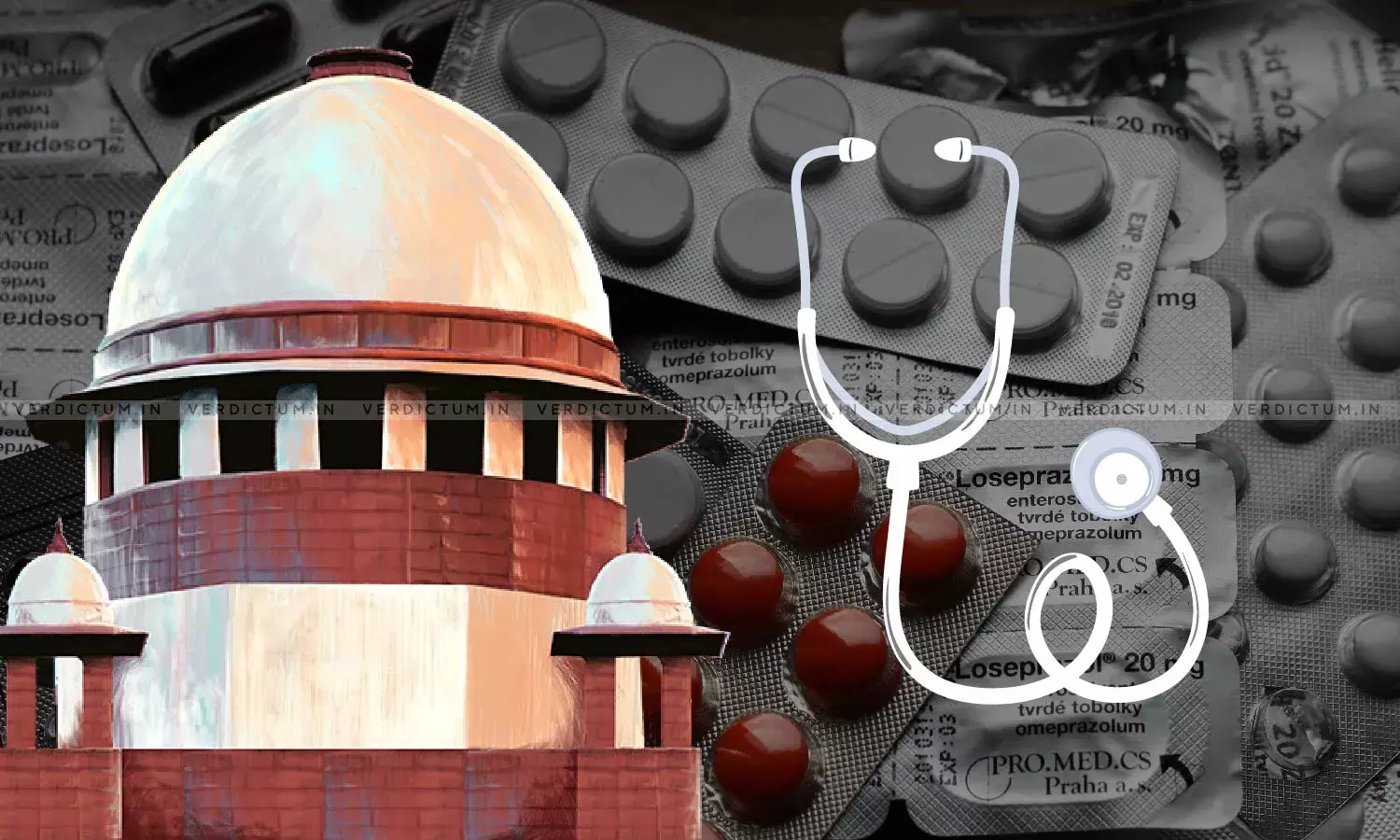Generic Vs. Branded Medicines- NMC Keeps In Abayance Controversial Prescription Regulations Despite SC Agreeing To Consider Issue

Recently, the National Medical Commission issued a Gazette Notification to keep in abeyance the implementation of the National Medical Commission Registered Medical Practitioner (Professional Conduct) Regulations, 2023 which had initially placed restrictions on medical practitioners, preventing them from prescribing branded medicines to patients, instead of Generic drugs/medicines.
This decision came as a surprise, especially since the Supreme Court, on August 18, had issued notice in a Public Interest Litigation and had agreed to consider the case which sought to establish guidelines and measures against medical practitioners who were prescribing branded medicines to patients instead of opting for Generic drugs/medicines. Generic drugs contain the same active ingredients as their branded counterparts, but are not marketed under a specific brand name and are often more affordable.
The Notification says, "That National Medical Commission Registered Medical Practitioner (Professional Conduct) Regulations, 2023, are hereby held in abeyance with immediate effect. That for removal of doubts, it is clarified that the National Medical Commission Registered Medical Practitioner (Professional Conduct) Regulations, 2023, shall not be operative and effective till further Gazette Notification on the subject by the National Medical Commission."
Rule 8 of the 2023 Regulations, which has been put on hold, said: "Prescribing Generic Medicines: Every Registered Medical Practioner should prescribe drugs using generic names written legibly and prescribe drugs rationally, avoiding unnecessary medications and irrational fixed-dose combination tablets. (L1 and/or L2)(Generic Drugs and Prescription guidelines)" while Rule 37 said that any violation of these Regulations, or other applicable Acts related to medical practice which are in force, shall constitute professional misconduct.
The preamble of the 2023 regulations said India’s out-of-pocket spending on medications accounts for a major proportion of public spending on health care. Further, generic medicines are 30 to 80% cheaper than brand drugs. Hence, prescribing generic medicines may overtly bring down healthcare costs and improve access to quality care.
Shortly after the Union Ministry of Health convened a meeting to deliberate on the guidelines, involving key stakeholders such as the IMA and the IPA, the decision to suspend the implementation of the National Medical Commission Registered Medical Practitioner (Professional Conduct) Regulations, 2023 was announced.
In the PIL filed before the Supreme Court under Article 32 of the Constitution by the RTI Activist and Environmentalist, Kishan Chand Jain, it is submitted that by prescribing generic drugs, healthcare professionals can help alleviate the financial burden on patients and facilitate their access to vital medications.
The petitioner contended that it is unfortunate that due to the lack of a robust system in place to enforce these regulations through the initiation of disciplinary proceedings, surprise checks of prescriptions, and regular prescription audits, the regulations remain largely unimplemented in practice, existing solely within legal frameworks.
"Cost is a crucial aspect when it comes to accessing medicines. Generic drugs, which have the same active ingredients as their branded counterparts but are not marketed under a specific brand name, are often significantly cheaper. The prices of generic medicines (off-patented) can be 50% to 90% lower than those of branded medicines. This price difference makes generic drugs more affordable and accessible to a broader section of the population", it is contended in the PIL.
The Supreme Court is likely to consider the PIL on October 6, 2023.

